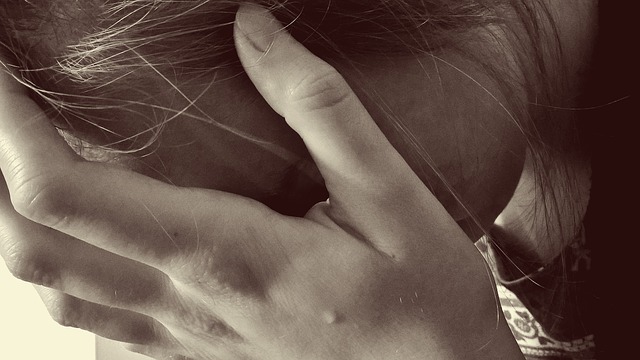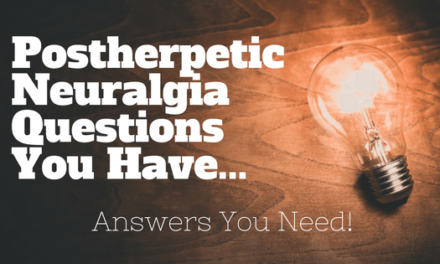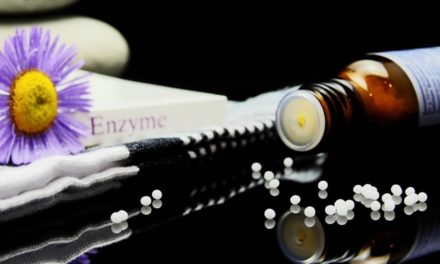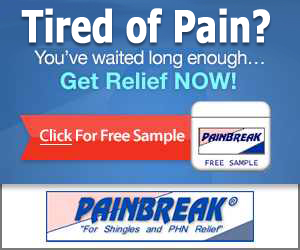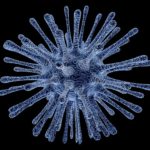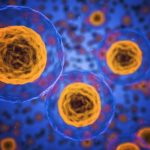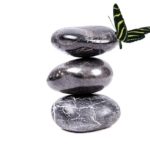Postherpetic Neuralgia Questions you Have….
Answers You Need!
PHN may cause you to become depressed. This is not unusual with someone suffering from chronic pain, which often deprives you of restful sleep. In fact, depression is a normal response to chronic pain. Studies indicate that the same biochemicals that intensify pain can also cause and intensify depression. This depression is classified as reactive depression, and is reversible with treatment. it is quite different from endogenous depression which is caused by chemical imbalances. Understanding what is happening to you, and why, can go a long way in helping you to deal with it successfully.
As a PHN sufferer, you probably have a lot to be angry and depressed about. First, you have to deal with the chronic pain. Then you feel frustrated at the feeling that the medical profession is not doing enough to help you, and is not offering you much hope. You are constantly exhausted because of a lack of sleep. You feel helpless at having to give up many of your enjoyable activities, and you are angry because you have to deal with people who don’t seem to understand what you are going through.
With all the problems that you are dealing with right now, it is quite understandable that you would become depressed. Please be assured that you are not alone, and that there are things that you can do to brighten your days.
I realize that it is very to difficult to be optimistic and start a program of improvement in the midst of continual chronic pain. Fortunately, with the relief you get from using PainBreak, Larreastat, the nutritional program you’ve probably already started, and the insight you gained in the previous report titled”Here’s a Positive Way to Start Your Day,” as well as the Magnetic Therapy you will find about in the next report, will help turn the tide against your pain, and toward better health for you.
The true solution, in addition to using the products and ideas mentioned above to lessen your pain, lies in realizing that your emotional and mental outlook has a tremendous effect on the way you cope with the pain of PHN. Realize that unless chronic pain is properly managed – both physically and psychologically, it is likely to get worst over time.
1. SEEK EMOTIONAL SUPPORT:
The true management of chronic pain starts with sincere, compassionate caring. To provide compassionate caring, the care giver has to validate your experience of pain. It has been proven that paying attention to, and validating a persons experience of chronic pain will bring about a significant healing effect.
The place to start compassionate caring is with yourself. You must learn to be kind to yourself, and the way to start doing this is to validate your pain. You must also take control of your own life by setting up a monitoring system that alerts you to the early warning signs of depression, and helps you to respond to these warning signs before the depression deepens, and becomes more difficult to treat. (see the end of this report for a list of the major signs of depression)
The next step is to seek out others who understand and validate your experience of pain and associated depression. You have an innate need to do this, and when properly established, will produce profound emotional as well as physical benefits to you.
a) You need emotional support and compassionate caring from your physician or health practitioner
b) You need emotional support and compassionate caring from your family
c) You need emotional support and compassionate caring from a support group. Although finding such support is not likely to cure the pain, it almost always dramatically improves your resolve to pursue, and follow through with effective treatment. The environment of a center where others face and overcome similar difficulties will also help to bolster your morale. Your biggest challenge however will be in finding such a support group.
2. GIVE EMOTIONAL SUPPORT:
Even though this may seem extremely difficult right now, you will benefit greatly by giving emotional support. This may be due to the fact, in part, that you are distracted from your own problems when you focus on the needs of others. It may even help you to place your own situation in perspective. We have all heard the saying – “I was feeling bad because I had no shoes, until I met a man who had no feet.” We are told, and rightly so, that “it is more blessed to give than to receive.” It is a well known fact that to have a friend, you must be a friend. Sharing problems with others in similar circumstances often eases the return to social life.
3. MANAGING DEPRESSION:
a) Medications – It is interesting to note that the medicines used to treat depression also help to relieve neurogenic pain – such as PHN, but their effect is weak. These medicines act by increasing the level of neurotransmitters in the brain.
Neurotransmitters are chemicals used to carry nerve impulses from one cell to the other. One of these chemicals is setonin, and it works by improving your mood. As mentioned above, serotonin can also help to relieve pain by blocking the impulses in the spinal chord, that signal to the brain that there is an injury. For many people, the most effective of these drugs appears to be the antidepressant amitriptyline (brand names Elavil and Endep). As you well know, individual reactions vary, and some may find that Nortriptyline, Desipramine or Maprotiline, work better.
b) Counseling – If you decide to see a counselor (many people take medications and also see a counselor) be sure the counselor validates your pain, encourages and supports you, and does not criticize you, blame you, or try to control your life.
c) Nutritional approach – What you eat can affect your mood. As you found out above, adequate amounts of the neurotransmitter serotonin can not only improve your mood, but may also block the pain impulses from your spinal chord. You may find the foods and supplements that promote the production serotonin helpful in improving your feeling of well being and relief.
Here are five things you can do…
i) Eat a diet that is high in complex carbohydrates such as raw fruits and vegetables, soybeans and soy products, brown rice, millet and beans. Complex carbohydrates promote the absorption of tryptophan, which in turn increases the activity of serotonin.
ii) Eat foods that are relatively rich in tryptophan such as pumpkin seeds, sunflower seeds, bananas, peanuts, lentils, milk and cottage cheese.
iii) Eat foods that are high in essential fatty acids such as salmon, mackerel, sardines, tuna and flaxseed.
iv) Avoid high protein foods in the evening as they can block serotonin production.
v)Take a balanced multivitamin and mineral formula such as “ALL-ONE” to increase your energy, improve your sense of well being, and correct any nutritional deficiencies that may be aggravating your depression.
d) Sunshine – Because of the pain and its associated depression you may not want to venture out. Remember however, sunshine is one of nature’s treatments for depression. Make it a point to get out into the sunshine everyday.
e) Exercise – Walking, swimming or any other activity that you enjoy can be an effective antidote for depression. During exercise, the brain produces pain-killing chemicals called endorphins and enkephalins. Certain endorphins and other brain chemicals released in response to exercise also produce a natural high, making exercise one of the best ways to get rid of depression.
f) Music
4. MANAGING SLEEP PROBLEMS ASSOCIATED WITH DEPRESSION:
There are steps you can take to improve you ability to get more restful sleep. Find out what these are in the next report.
5. DEALING WITH THOUGHTS OF SUICIDE:
To often the tragic outcome of depression is suicide. That’s why it’s important to learn to manage the depression or seek competent professional help, before it gets worst. If you have any of the following symptoms, you are depressed.
Major Signs of Depression
(Excerpted from The Diagnostic and Statistical Manual of Mental Disorders – 1987, developed by the American Psychiatric Association. If you have:
* Depressed mood most of the day, almost every day
* Diminished interest or lack of pleasure in almost all activities of the day, nearly ever day.
* Unexplained significant weight loss or gain, and decreased or increased appetite nearly every day.
* Insomnia or hypersomnia (excessive sleep) nearly every day
* Abnormal restlessness or a drop in physical activity nearly every day.
* Fatigue or loss of energy nearly every day.
* Feeling worthless or excessive or inappropriate guilt nearly every day
* Diminished ability to think, concentrate, or make decisions nearly every day
* Recurrent thoughts of death, or recurrent suicidal thoughts without a specific plan; or a suicide attempt; or a specific plan for committing suicide.
WARNING TO CAREGIVERS
As a care giver, you need to guard against burnout. The PHN sufferers slow slide into feelings of sadness, melancholy, loneliness, feelings of alienation and anger, can cause to become desperate in your well meaning attempts to get them out of their shell.
You can be most helpful if you validate their pain, and its subsequent depression. Face the pain and its consequences with reality, and help the PHN sufferer to do the same.
Keep hope alive, but don’t fall into the trap of looking for a miraculous cure.
Identify the treatments that bring relief, and work on maximizing the benefit you could get from those treatments
Identify the diversions that give brief relief, and then expand these periods of distraction until they become a way of life.
Work on finding community support, and learn to recognize when professional help is needed, either for you, or for the PHN sufferer.
Next time you will find out what steps you can take to improve your ability to get more restful sleep.
Did you know that:
Six out of every ten PHN sufferers who try PainBreak, a new topical analgesic,
are getting relief… Now it’s your turn!
But will PainBreak work for you? There is only one way to find out…
Complete the following “Quality of Life Questionnaire” and I will send you a 30 day supply of Painbreak absolutely “free” and postage paid.
From Boyce N Berkel, MD, PhD – Neuralgia Relief Center – For Your Health and Betterment

